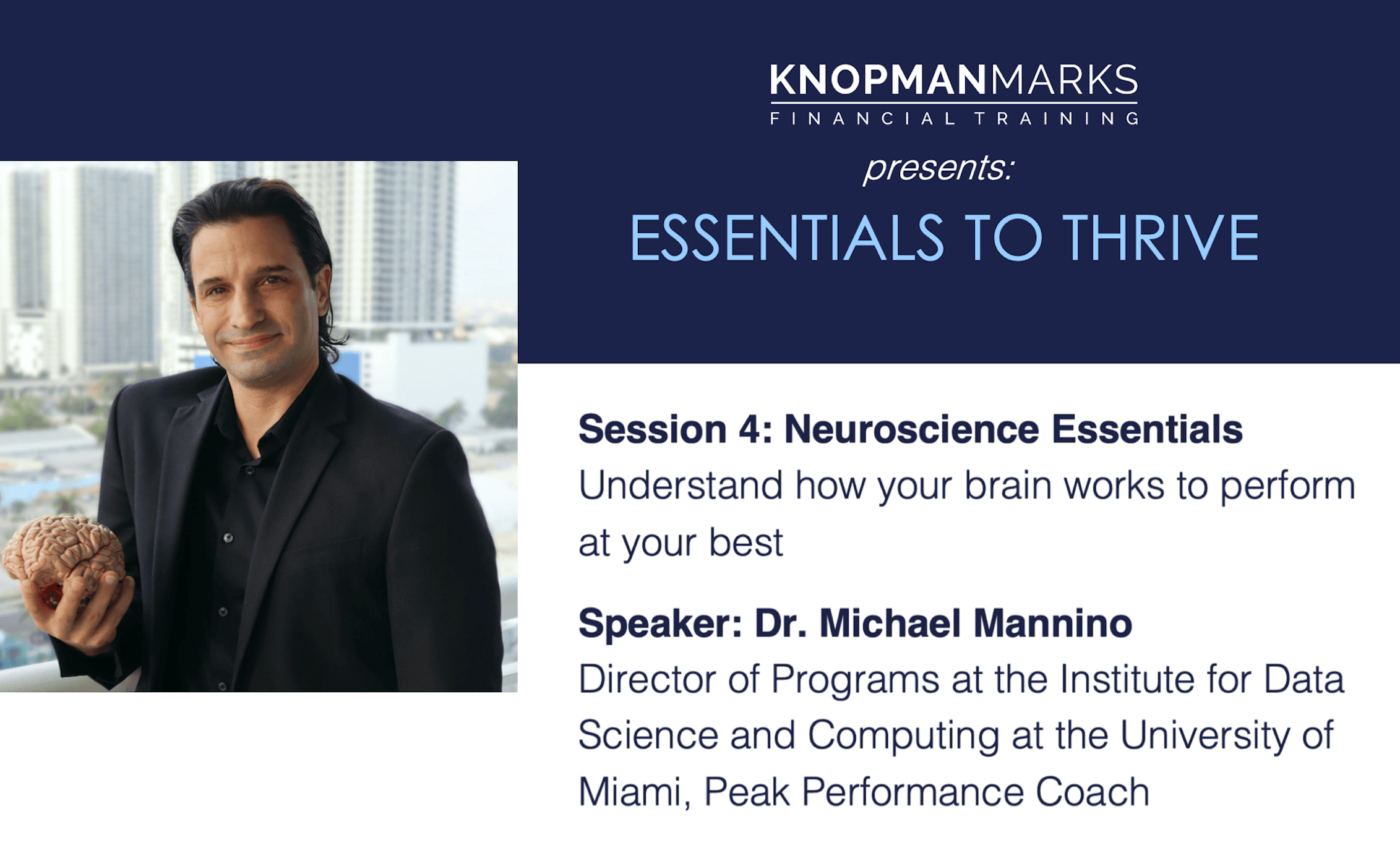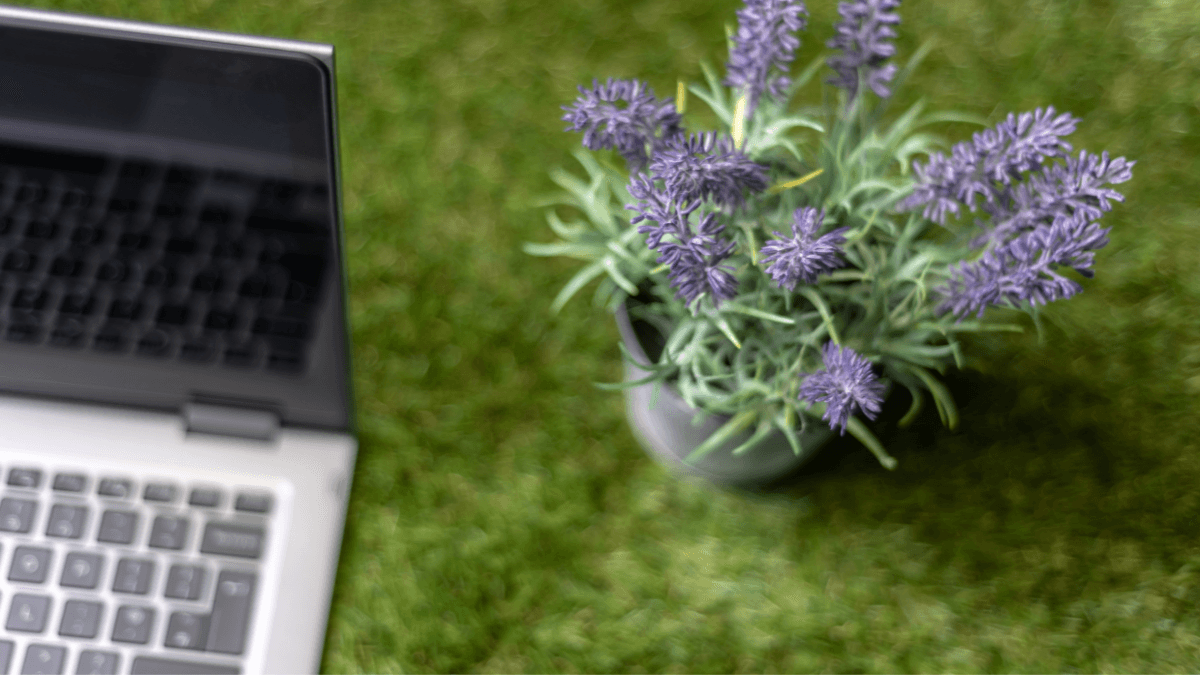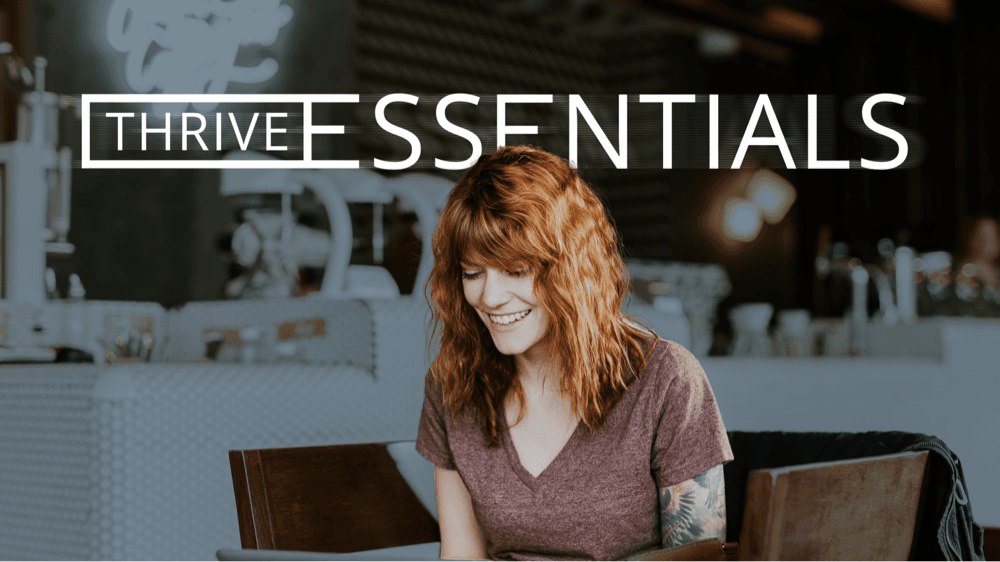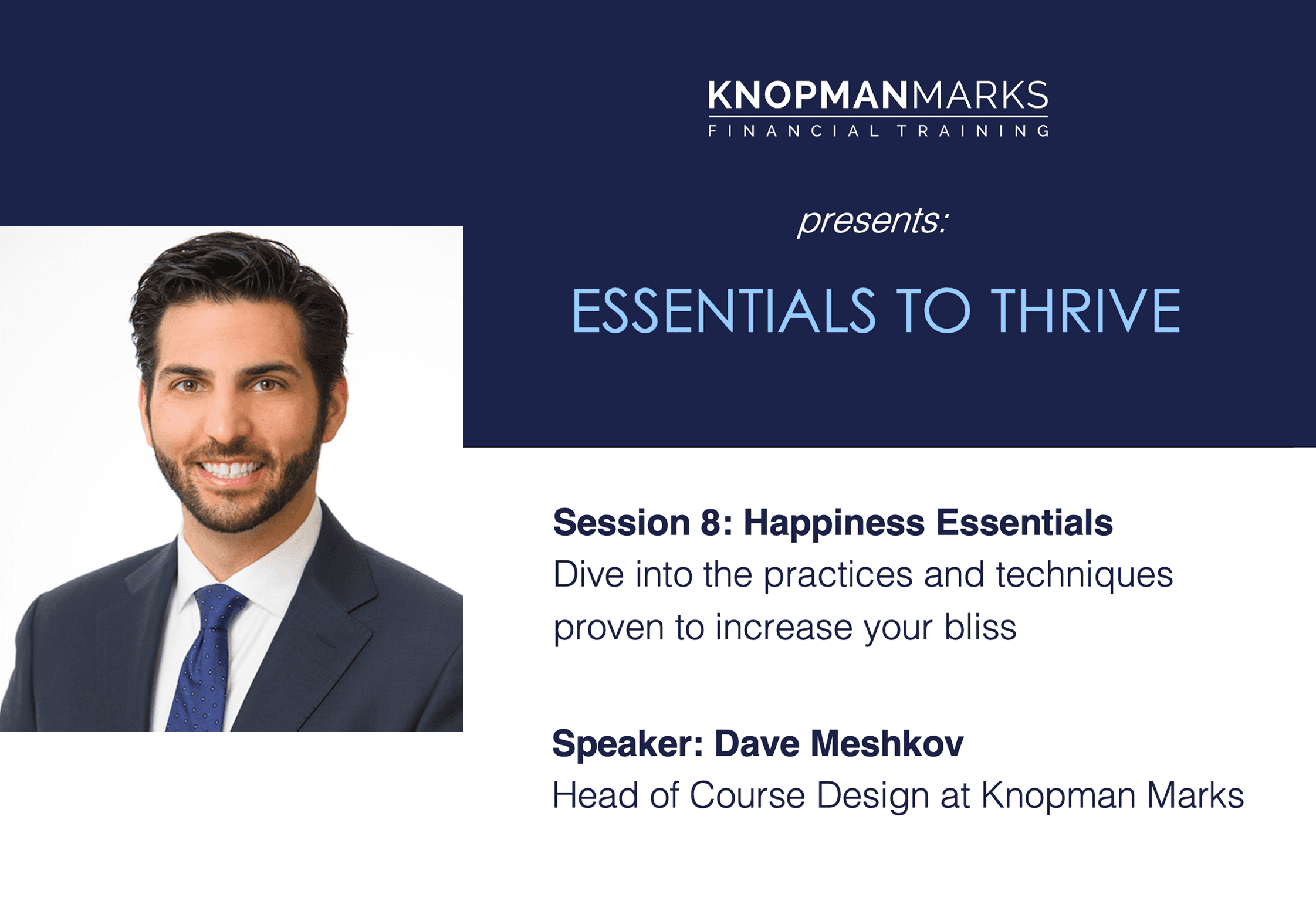Neuroscience Essentials: Supercharge Your Ability to Learn
Filed in: Essentials to Thrive

It’s the night before your exam, so you stay up to cram all the information you can into your brain. How well will you perform?
Not very well, according to Dr. Michael Mannino, who has studied how we learn and the strategies that boost performance. Cramming the night before an exam does not help your brain retain critical knowledge. It also increases stress, which has a negative effect on your ability to concentrate.
A neuroscientist who has explored how the human brain is involved in learning, memory, attention, and cognition, Dr. Mannino presented actionable and dare we say it, mind-blowing scientific findings in his live masterclass, Neuroscience Essentials – Understand how your brain works to perform at your best.
Dr. Mannino provided strategies to improve performance. He also busted neuromyths, those commonly held false beliefs about how the brain functions. “We are discovering what goes on in the brain during optimal performance and learning,” Dr. Mannino says, “and translating that information into practical use.”
Busting Neuromyths About How We Learn
Dr. Mannino started by polling the audience about whether it’s true that we have different learning styles, some more visual, auditory, or kinesthetic. In fact, this is false. Though some teachers aim to match students with their preferred learning style, Dr. Mannino says this does not work. “This approach pigeonholes students into thinking they can only learn one way,” he says. “There is no such thing as learning styles at the level of the brain.”
We can leverage what we know about the brain to perform better on tests and reach our full potential, says Dr. Mannino, Director of Programs at the Institute for Data Science and Computing at the University of Miami. His highly engaging and energetic masterclass covered everything from neuroplasticity and learning, to peak performance and flow, and the importance of staying active.
3 Big Ideas to Optimize Your Ability to Learn
- Build your cognitive reserve. As we get older, we increase our risk of developing impairments in cognitive functioning. The growth of new neurons can still occur in adults but requires more effort, Dr. Mannino says. Our cognitive reserve allows the mind to be more resilient. To strengthen your cognitive reserve, engage your brain. “Read books, learn to play a new instrument, learn a new language, brush your teeth with your other hand,” Dr. Mannino suggests. “Mix it up. Learn new things. This is the most important thing you can do for your brain.”
- Be ruthless with your attention. The belief that some brains are better at multitasking than others is a myth, Dr. Mannino says. The brain can only pay attention to one or two things at a time. We can optimize learning by engaging in critical thinking and developing a curiosity mindset. “Eliminate distraction for peak performance and flow,” he says. “Flow follows focus.”
- Stay active to improve brain health and resilience. An amateur athlete, Dr. Mannino is fascinated by the relationship between mind and body, and the intersection of neuroscience and fitness. Exercise changes the brain in ways that can protect memory and thinking skills, he says. Regular exercise, especially different kinds of exercise, is very good for the brain.
Q&A with Dr. Michael Mannino
What motivates you?
Curiosity. The secret to lifelong happiness for me is learning. I read all the time. I play sports. I am motivated and I have high, hard goals that have driven me. For example, I now have the high, hard goal of doing a one-arm handstand. It’s a very difficult move to learn. This can take years to master. I am very close. I love taking on a huge challenge. I’ve always been interested in maximizing mental and physical potential. I’m really inspired by Einstein and Carl Sagan, in tennis by Roger Federer. Such fighters. Such grit.
Do you ever experience challenges to peak performance?
It takes me a long time to do things. I get things done. I have grit and perseverance out the wazoo, but it can take me a long time. Another challenge for me is self-discipline. Sometimes I feel lazy. I can be intellectually lazy. I read a study showing that intellectuals tend to be lazier.
Are there differences between peak performance in studying versus athletics?
I believe there is not much difference between the intellectual and the physical in peak performance. In the peak performance space, it’s all about getting into a flow. There’s artistry in creative spaces. Our mind is a self-organizing system that happens because of moving and interacting in the world. There is much less distinction between cognition and moving than previously thought. Athleticism is part and parcel with neuroscience. They are very connected.
Tune in Every Week
REGISTER HERE to attend our live-streaming, Essentials to Thrive masterclass sessions every Wednesday at 12:30 pm EST. Coming up:
- May 6 – Confidence Essentials: Create unshakable self-confidence to meet any challenge head-on. Speaker: Rita Kakati-Shah, Founder and CEO of Uma
- Bonus Session May 8 @ 2:00 pm EST – Breathwork Essentials: Use your breath to invigorate your body and re-center your mind. Speaker: Christine Luciano, Founder and Director of Align at Work
- May 13 – Career Essentials: Build your professional persona as if it were a world-famous brand. Speaker: Leyland Streiff, General Manager of Heat & Deloitte Digital
- May 20 – Success Essentials: Let go of the myth of work-life balance; create an integrated and fulfilling life. Speaker: Bernadette McBurnie, Success Coach, Founder of Women’s Academy
- May 27 – Happiness Essentials: Dive into the practices and techniques proven to increase your bliss. Speaker: Dave Meshkov, Managing Director, Head of Course Design at Knopman Marks Financial Training
If you missed Dr. Mannino’s session, a recording is available in the Training Center at www.knopman.com. You can access his book recommendations, and also see the recording and materials from previous sessions: Knopman Marks CEO Liza Streiff’s session on motivation; Giancarlo Pitocco’s session on digital wellbeing, and Rich Bello’s session on cultivating a leadership mindset.
Written by Suzanne Riss
Suzanne Riss is an author and Director of Communications at Knopman Marks Financial Training. Previously the award-winning Editor-in-Chief of Working Mother magazine, she is a fierce advocate for issues facing working moms and an authority on work/life trends. Her expertise has been tapped in interviews by The New York Times, The Wall Street Journal, Good Morning America, the Today Show, and CNN. Suzanne's third book, Work Disrupted, published by Wiley, was released in January 2021.
Related posts
- Read more
How Intentional Rest Boosts Performance
Though you may think that studying all afternoon without a break will improve your performance, r
- Read more
Three Hacks to Boost Motivation, from Knopman Marks CEO Liza Streiff
Liza Streiff offered a high-energy masterclass on motivation to launch Knopman Marks’ new, 8-week
- Read more
Power of Gratitude to Boost Happiness and Exam Performance
Dave Meshkov invited participants to experience the uplifting effects of gratitude in real time,


